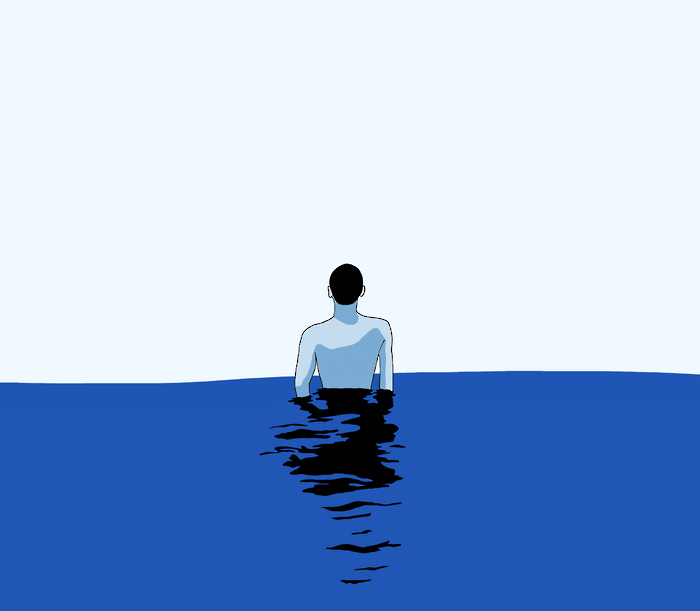Breathe, and bring awareness to your body
Breathing is not just a biological necessity, but can control levels of anxiety and stress, says Charlotte Newman in her second column on mindfulness

Breathing. A task that is fundamental to our very existence, but one that we very rarely even notice. Breathing is what allows us to come back to our bodies, away from our minds. It connects us to the present moment. Watching and becoming aware of how we breathe can help us pause and reconnect with ourselves away from our thoughts and busy lives.
There have been numerous studies on the effects of breathing on anxiety, and the ways in which deeper can aide our mental health. When we are anxious, we often breath with our upper chest (so if you were to put a hand on your chest and a hand on your stomach area right now – if your upper hand moves when you breathe then this type of breathing is upper chest).
Lower breathing, or deep breathing, promotes calm, and a stillness that allows us to just be.
When we are anxious, we often breathe more quickly and with shorter breaths. If you try counting your breath in and out, the outer breath should be slightly longer than the inner breath (if it's the other way around, this can increase feelings of anxiety). We may well not realise we are breathing like this when we're reading a book, writing an essay, or even when we are trying to unwind with a TV programme, but if our breath is quickened, physiologically it can increase anxiety and stress without us even realising.
How do we stop? How do we breathe deeply? And how can this help us be still during our daily lives? One of the simplest ways of noticing this is through the hand exercise I mentioned, I still find it useful to have a hand on my abdomen and feel it rise and fall. Using a hand is also useful in bringing us out of our thoughts – if we are focused on our physical body, on the sensations and actions of deeply breathing out and receiving the next breath that will sustain us – it is much more difficult for our minds to run away with thoughts about the past and the future. The present moment is all we ever truly have, and we cannot be alive in the present without breathing, so it is fitting that this is what anchors us, what can slow us down and allow us to find a stillness, a calm, away from our thoughts.
Breathing is often used in meditation practices, but bringing ourselves back breathing can be done anytime, anywhere and allows us to step back and come back to the present moment.
When you notice you're doing upper chest breathing, or having anxious thoughts about a deadline, try exhaling gently and fully, and then drop your shoulders. We hold so much tension in our upper bodies, and dropping your shoulders while exhaling can help to alleviate this. We can then receive a new breath and inhale gently through the nose.
Visualisation is also a useful technique in helping to guide us back to the present. Visualise, as you breathe out, a beam of light (it can be any colour) above your head and then feel the next breath pulling the light through your body down to your feet and sinking deeply into the ground.
Deep breathing is used in meditation, yoga and Tai Chi, to name just a few practices, and multiple studies have shown that it reduces stress levels. Physiologically, you will become calmer, and feeling and trying to notice the sensations we experience when we breathe deeply allows us to return to the present moment and to be still. To be with our physical selves, to feel instead of think. It is a starting point that can bring us back to the present, and can be used as the bridge to connect us to the stillness within us that can provide us with peace and calm, that can bring us into this moment, into an awareness of existence that otherwise can remain shut off behind our thoughts.
 News / Candidates clash over Chancellorship25 April 2025
News / Candidates clash over Chancellorship25 April 2025 News / Cambridge professor paid over $1 million for FBI intel since 199125 April 2025
News / Cambridge professor paid over $1 million for FBI intel since 199125 April 2025 Interviews / Dr Ally Louks on going viral for all the wrong reasons25 April 2025
Interviews / Dr Ally Louks on going viral for all the wrong reasons25 April 2025 Music / The pipes are calling: the life of a Cambridge Organ Scholar25 April 2025
Music / The pipes are calling: the life of a Cambridge Organ Scholar25 April 2025 Comment / Cambridge students are too opinionated 21 April 2025
Comment / Cambridge students are too opinionated 21 April 2025






